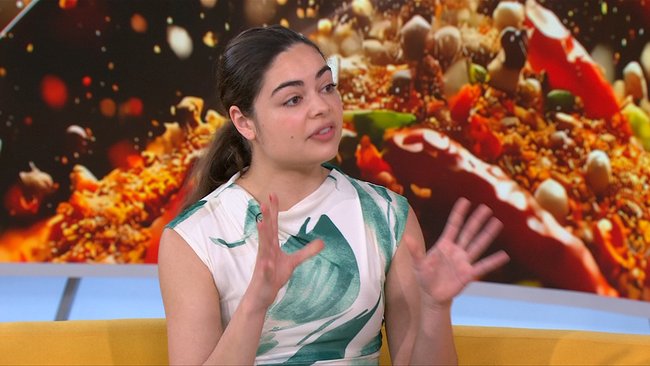Our Terms & Conditions | Our Privacy Policy
Sunrise scientist Maddie Massy reveals truth behind viral calorie-cutting rice trick made popular on TikTok
The official verdict on the latest viral video is in — freezing cooked rice and then reheating it can help reduce calorie absorption, Sunrise scientist Maddie Massy has confirmed.
While the hack has become popular on TikTok, like most things on social media its reliability was uncertain.
But when Massey was quizzed about it on Sunrise on Wednesday, she was able to confirm this hack actually works.
Know the news with the 7NEWS app: Download today
“It’s true. It’s really cool,” Massey told host Nat Barr and Monique Wright.
“The process of heating and cooling creates digestible resistant starch.
“It’s a type of starch that isn’t digested as normal in the intestine. Getting less calories and less of a blood sugar spike when you eat that rice, it’s better for you.”
A team of Sri Lankan scientists actually pioneered the modern discovery of the hack, as published by The Smithsonian magazine in 2015. They were seeking out “food-based solutions” to combat growing global obesity rates.
On Sunrise, Massey also spoke about the common five-second rule for dropped food.
It is a commonly held belief bacteria will not transfer to food if it is picked up within five seconds of hitting the floor, or other potentially contaminated surface.
Massey confirmed that belief is false and studies had shown even the quickest of interventions can still result in significant contamination.

 Scientist Maddie Massy on Sunrise on Wednesday. Credit: Seven
Scientist Maddie Massy on Sunrise on Wednesday. Credit: Seven
“We started with two types of food — plain sliced toast and boiled egg,” Massey said.
“We dropped it on the ground and scientists from the lab counted the number of bacteria on the food and compared it to clean samples that had not been dropped.”
Massey explained germs got onto all the food which had been dropped.
“They definitely did,” she said.
“It is interesting. We saw there was a big increase in bacteria after two seconds on the floor but then there wasn’t a further increase after 10 seconds.
“So, this suggests to us that as soon as the food hits on the floor or drops on the ground, quickly rushing to pick it up doesn’t help.”
She added the extent of contamination was “absolutely” influenced by the type of surface and the type of food.
“So, if you have a food that is wet and sticky with flat surfaces — so like the sliced boiled egg on a flat smooth surface like kitchen tile — you’ll get way more transfer,” she said.
But there is still hope for that Vegemite on toast you just dropped, spread side down, if you are happy to take a small risk.
Massey said a lot of the bacteria transferred from the floor to food would often be harmless to humans.
“When you drop food on the ground, you’re immediately going to get lot of bacteria,” she explained.
“A lot of bacteria are not going to be harmful to humans.
“The likelihood of you getting sick from eating food off the floor is low — that being said, I’m not recommending it.”
How a cooked cup of rice sparked a ‘boiling’ rural rivalry
2 min read
Axe the $50m broadcast tax, demands senator
3 min read
Images are for reference only.Images and contents gathered automatic from google or 3rd party sources.All rights on the images and contents are with their legal original owners.


Comments are closed.